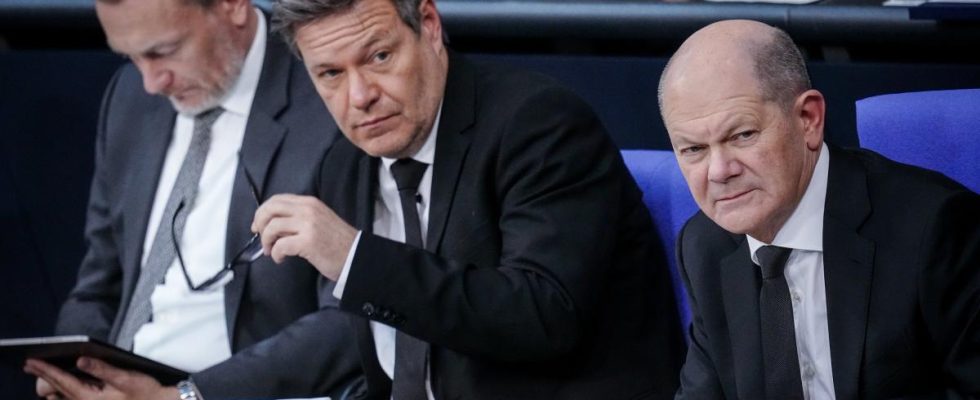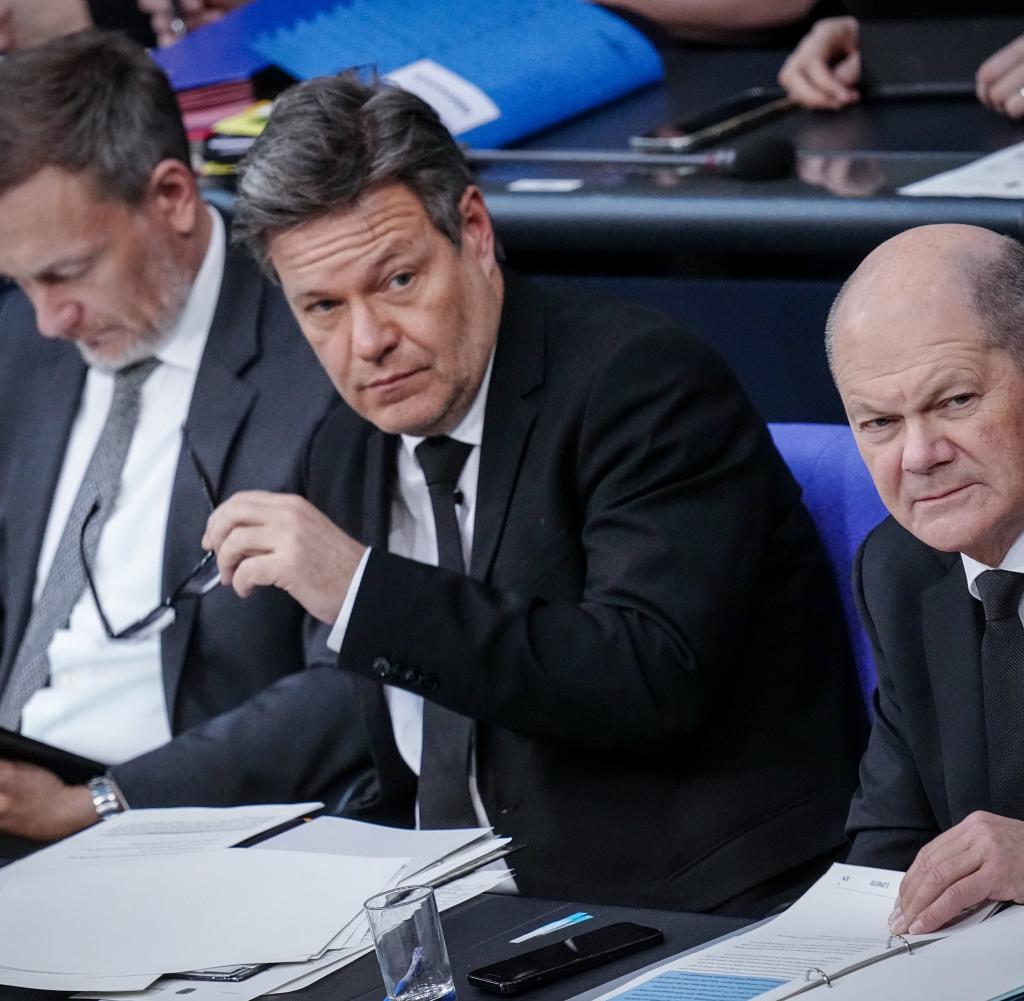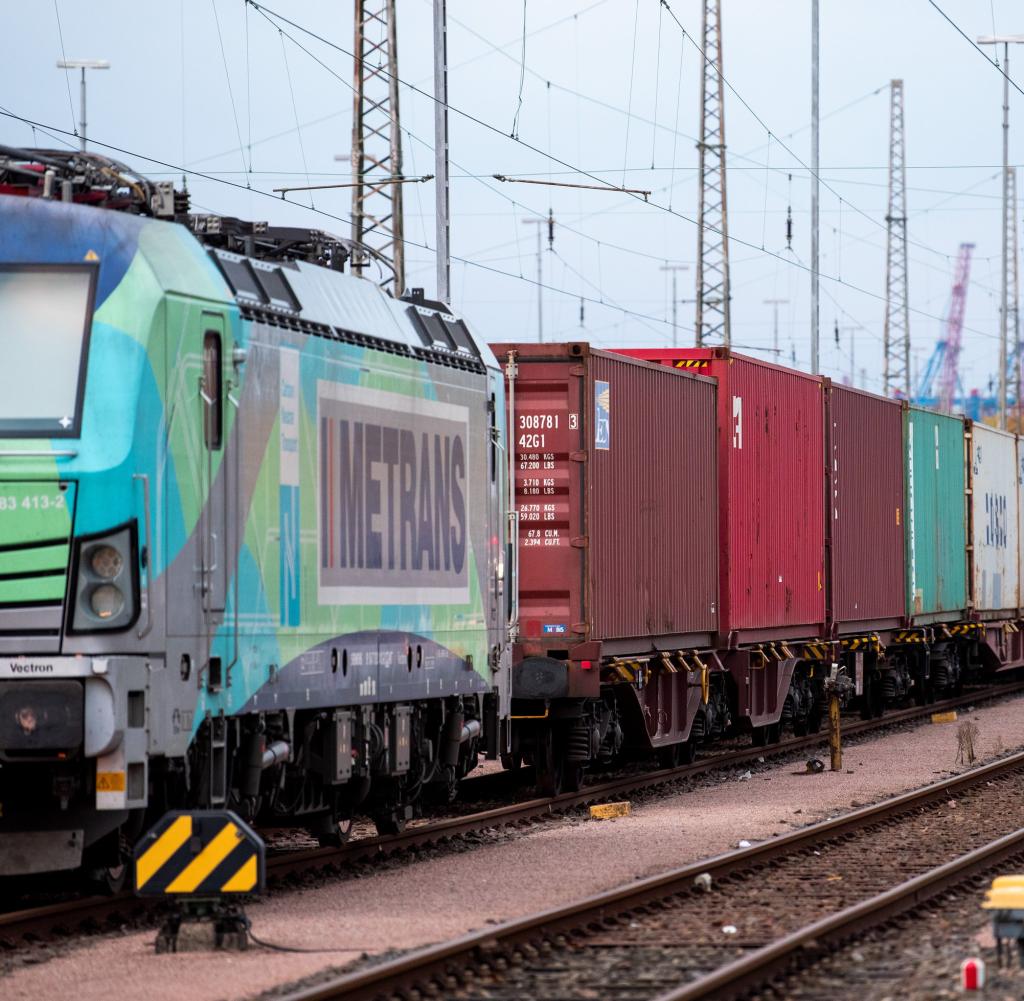Relief for companies – Scholz slows down Lindner and Habeck
“Robert Habeck is developing into the king of shop window politics”
There is a dispute at the traffic lights about measures to relieve the burden on the economy. Finance Minister Lindner proposes abolishing the solidarity surcharge, Economics Minister Habeck brings a special fund into play. CDU politician Gitta Connemann calls on WELT TV for the traffic lights to finally act.
Economics Minister Habeck and Finance Minister Lindner recently made headlines with proposals to relieve the burden on companies. Chancellor Scholz is cautious. And the Greens and the SPD are now against abolishing the solidarity surcharge for companies.
bChancellor Olaf Scholz (SPD) reacted cautiously to initiatives to provide tax relief for companies. Scholz called on Monday evening to concentrate on enforcing the Growth Opportunities Act, which is currently being discussed in the Mediation Committee of the Bundestag and Bundesrat. “It’s practical, tangible and works quickly,” he said in Berlin. Finance Minister Christian Lindner (FDP) and Robert Habeck (Greens) had previously started a debate about the abolition of the solidarity contribution and a debt-financed investment fund.
Scholz expressed the hope that the federal states would agree to the Growth Opportunities Act in the Mediation Committee, which, according to the plans of the traffic light coalition, provides relief for companies in the amount of seven to eight billion euros. However, Habeck had warned that the federal states could reduce the relief volume to three billion euros – which, in his words, was equivalent to a homeopathic effect.
The reason for the resistance from states and municipalities is that they would have to bear the majority of the loss of income from the planned tax relief for companies. “It is downright outrageous that of the announced seven billion euros in relief for the economy, perhaps only three billion euros or even less will now be realized,” criticized the Secretary General of the Union Economic Council, Wolfgang Steiger.
With a view to the sluggish economy, both Habeck and Lindner had called for more help for companies – but expressed different ideas about it. Lindner suggested, for example, abolishing the solidarity surcharge, which would also relieve the burden on companies. However, government circles said that the volume of around twelve billion euros in the 2025 budget could hardly be financed. According to estimates, there is already a financing gap of 25 billion euros.
Finance Minister Christian Lindner (from left to right), Economics Minister Robert Habeck, and Chancellor Olaf Scholz during the general debate on the federal budget
Source: dpa/Kay Nietfeld
Habeck, in turn, had proposed a loan-financed special fund for investments, but backtracked after criticism from the FDP. On Sunday on ARD, the Minister of Economic Affairs also suggested better depreciation conditions in order to quickly provide the impetus for investments in new production facilities.
Lang and Esken against the abolition of solos
Green Party leader Ricarda Lang and SPD leader Saskia Esken rejected Lindner’s proposal on Monday. The abolition of the solidarity surcharge for companies would primarily generate deadweight effects, said Lang. “And I haven’t heard any proposal for counter-financing yet.”
The SPD chairwoman Esken emphasized: “I am of the opinion that we cannot counter-finance the 30 billion, which would then be missing, in the budget.” In this respect, she does not see the suitability of this proposal.
Economics Minister Habeck brought a special fund into play in the Bundestag on Thursday in order to solve structural problems in the economy. For example, he mentioned the possibility of creating tax credits and tax depreciation options. Lindner rejected a special fund because it would mean new debts.
Lindner wants to work with Habeck to make German companies more competitive. In the ARD “Report from Berlin” the FDP politician said on Sunday evening: “Because of me, this speech in the Bundestag did not have to take place. We could have discussed this differently with each other. But now this debate is here. And now we’re doing something constructive with it.”
If the economics and finance ministers thought that something had to change in economic policy, “then that must now have concrete consequences for the federal government and for the coalition,” Lindner made clear.
Union calls for “real relief for the economy”
In any case, there is no lack of suggestions. The deputy SPD parliamentary group leader Verena Hubertz brought up a sovereign wealth fund on Monday in order to be able to invest more. She said on Deutschlandfunk that she believes it is important to examine new options that lie between increasing taxes and incurring debt. “And that’s why we as the SPD – both as a parliamentary group and as a party – have spoken out in favor of a sovereign wealth fund, i.e. a so-called Germany fund, which can also raise massive amounts of private capital through a capital collection point.” In this way, investments can be made in the infrastructure.
CSU regional group leader Alexander Dobrindt called on the government to act: “There needs to be real relief for the economy through lower corporate taxes, competitive energy prices and less bureaucracy,” said Dobrindt.
The chairwoman of the SME and Economic Union, Gitta Connemann, told WELT: “Once again, the impression of the ongoing dispute in the traffic lights is increasing. The Economics Minister doesn’t speak to the Finance Minister, the Chancellor has disappeared anyway.” The CDU member of the Bundestag warned: “The companies are up to their necks in water – the companies don’t have another two years.”




